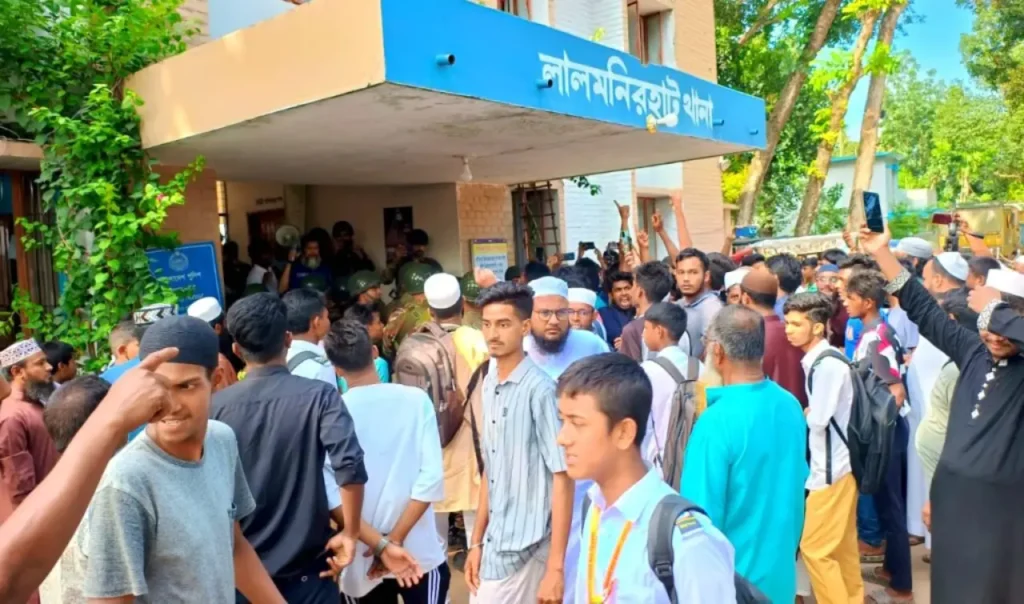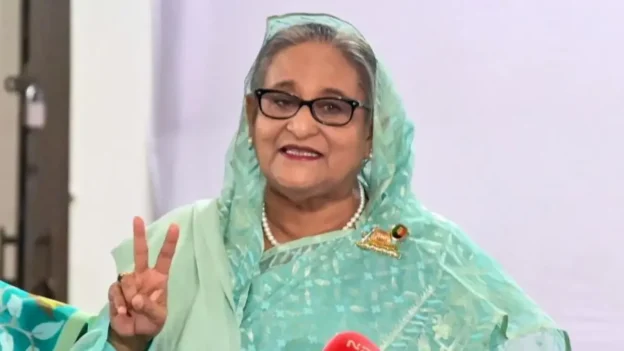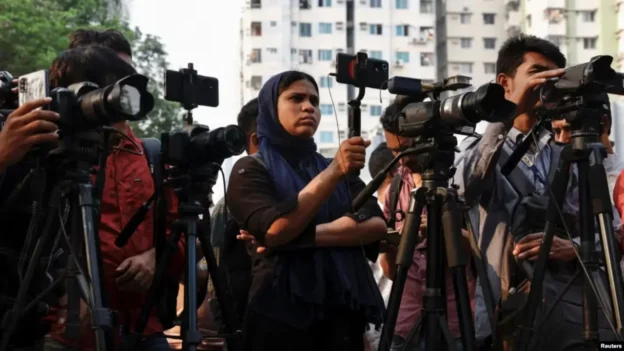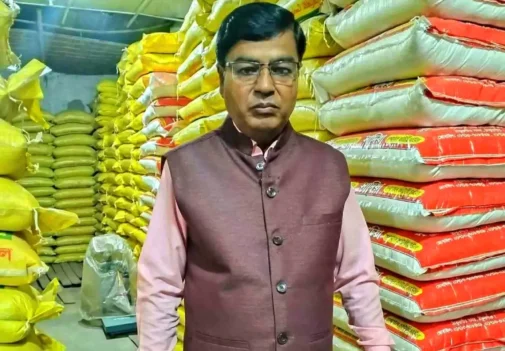In a grim tableau of sectarian cruelty that echoes through the annals of Bangladesh’s troubled communal history, an elderly Hindu barber, Paresh Chandra Shil, 69, and his son, Bishnu Chandra Shil, 35, were brutally assaulted by a frenzied Muslim mob on Sunday in the northern district of Lalmonirhat.
This savage attack, provoked by spurious allegations of “insulting” Islam and the Prophet Muhammad, underscores the perilous plight of Bangladesh’s Hindu minority, who face escalating persecution under a veneer of religious zealotry and political instability.
Video footage circulated widely on social media captures the raw violence inflicted on Paresh — punched, kicked, and forcibly stripped of his vest by an enraged crowd — while Bishnu suffered similar beatings as he intervened to protect his father.
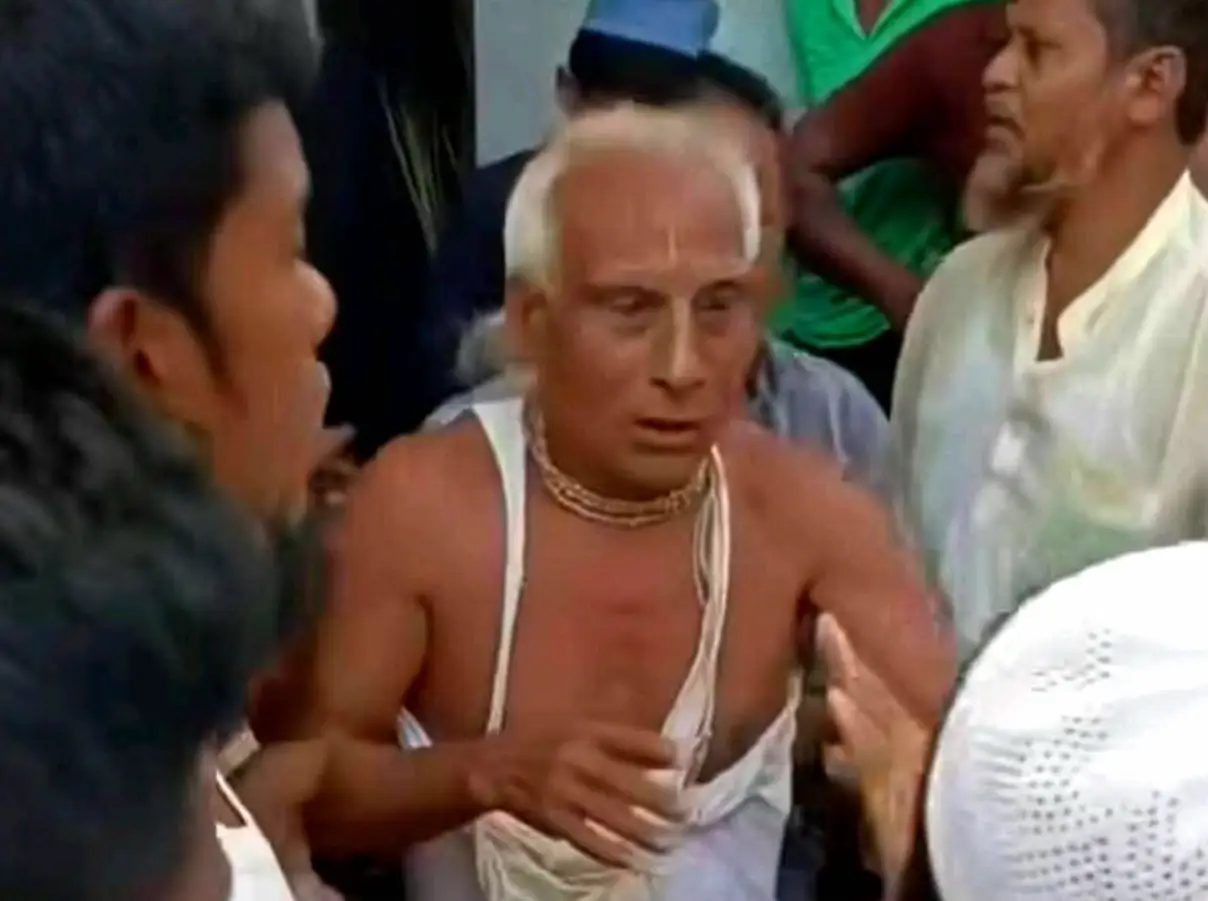
Both men were subsequently arrested by police on charges of “hurting religious sentiments,” a legal pretext increasingly exploited to justify repression.
This latest incident exemplifies a mounting and systemic wave of religious persecution that has surged markedly since the removal of former Prime Minister Sheikh Hasina in August 2024.
A senior Hindu leader in Dhaka, speaking on condition of anonymity, stated that they have documented at least 15 incidents targeting Hindu individuals accused of blasphemy or offending Islamic sentiments under the regime of Nobel Laureate Muhammad Yunus.
Earlier this month in Dinajpur, 24-year-old Sohag Das was menaced with death after accusations of posting blasphemous content on Facebook, with Islamist outfit Al Insaf Islami Sangh spearheading rallies demanding his execution.
In May, Bikash Dhar Deepta was detained in Moulvibazar Sadar under Bangladesh’s draconian Cyber Security Act, following protests over a Facebook post allegedly defaming the Prophet Muhammad.
April saw the forced displacement of Hindu shop owner Sobuj Das in Dinajpur after mobs orchestrated economic boycotts, while Akhil Chandra Mondal was brutally attacked in Tangail, bleeding under police protection.
In October 2024, Class XI student Hridoy Pal came under siege at Kadirdi Degree College in Faridpur, after a Facebook post—allegedly published from his hacked account—was deemed offensive by some.
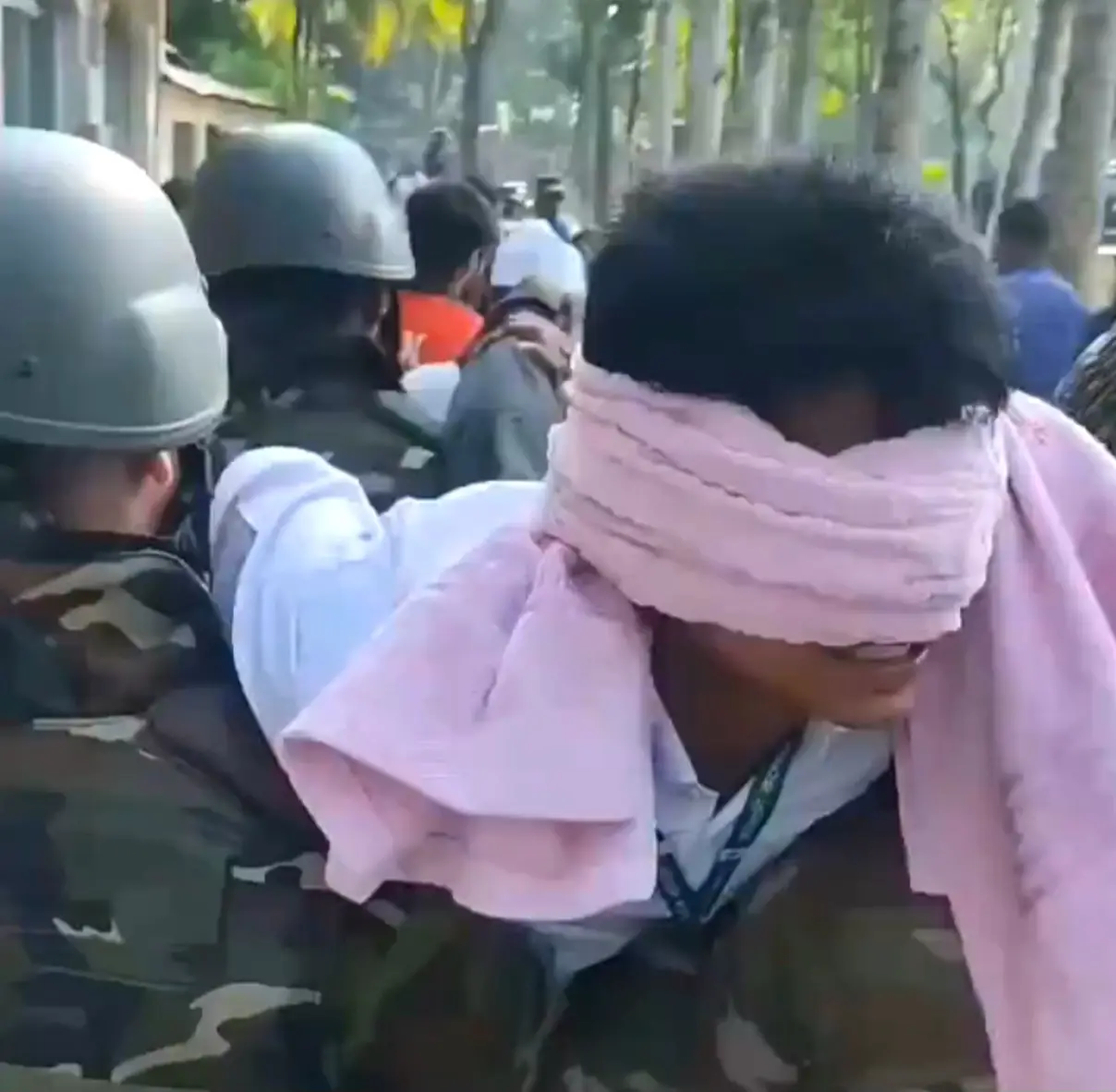
Despite his repeated explanations, he was violently assaulted, blindfolded, and handed over to the army. Video footage shows him being slapped by fanatics and beaten with sticks by uniformed personnel, raising serious concerns about both mob justice and the actions of security forces.
The most devastating blow came in December 2024 when around 100 Hindu homes including temples were vandalised and torched in Sunamganj district, prompting military intervention after a teenager was accused of blasphemy on social media.
Further incidents have reverberated through Faridpur, Chittagong, Khulna, and Sylhet, where mobs, arrests, and public degradations of Hindu victims have entrenched a climate of pervasive intimidation and sectarian hostility.
In November, a recommendation by the Bangladesh High Court to escalate punishments for blasphemy—advocating non-bailable charges, life imprisonment, or even capital punishment—has triggered profound concern among human rights advocates.
Presently, laws criminalize “hurting religious sentiments” with a maximum two-year prison sentence and fines of up to 500,000 taka.
However, these legal provisions are frequently weaponized to target minorities, often without substantive evidence or fair trials.
Rights organizations caution that tougher blasphemy laws risk exacerbating religious polarization and legitimizing mob vigilantism, thereby undermining the rule of law and minority protections.
Local Hindu residents in Lalmonirhat live in palpable fear of further violence as Islamist groups like Islami Andolon Bangladesh and its youth wing Islami Chhatra Shibir mobilize to amplify tensions.
Journalists reporting from the area describe a climate of panic and uncertainty, with calls for renewed protests fomenting.
Despite the gravity of these attacks, government authorities have remained conspicuously silent, raising critical questions about the state’s commitment to protecting its minorities and upholding constitutional guarantees of religious freedom.
The relentless persecution of Bangladesh’s Hindu minority amid politically charged blasphemy accusations is a clarion call for urgent intervention.
Bangladesh, a Muslim-majority nation of more than 170 million, has seen periodic outbreaks of communal violence in recent years, particularly affecting its Hindu population, which accounts for about 8 percent of the population.
This sustained campaign of intimidation and violence threatens not only individual lives but the nation’s foundational principles of pluralism and tolerance.
Failure to act decisively risks further fracturing the social fabric, emboldening extremist factions, and entrenching sectarian animosity—endangering Bangladesh’s hard-won democratic and multicultural ethos.
Source : The Chittagong Hill Tracts

